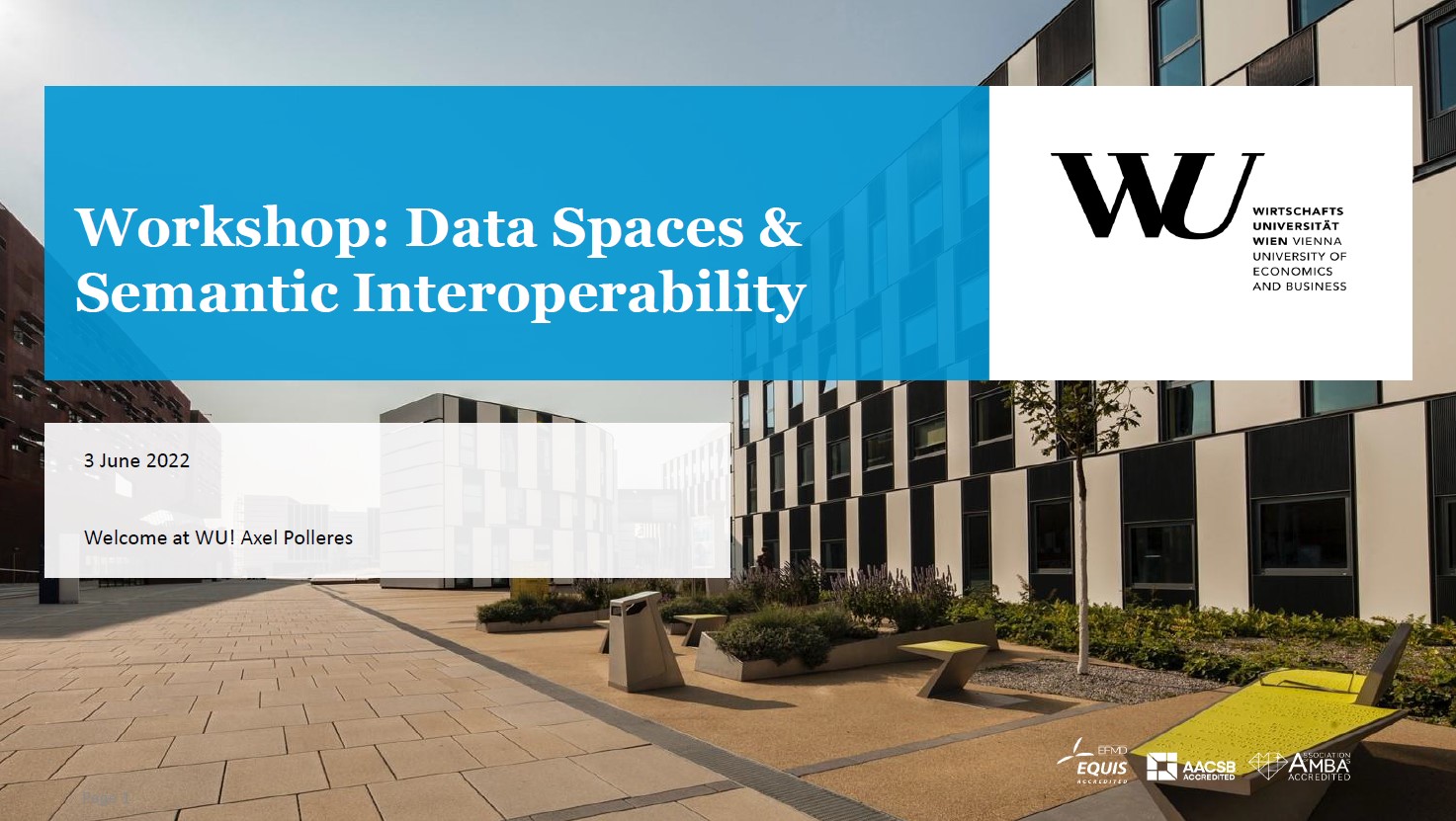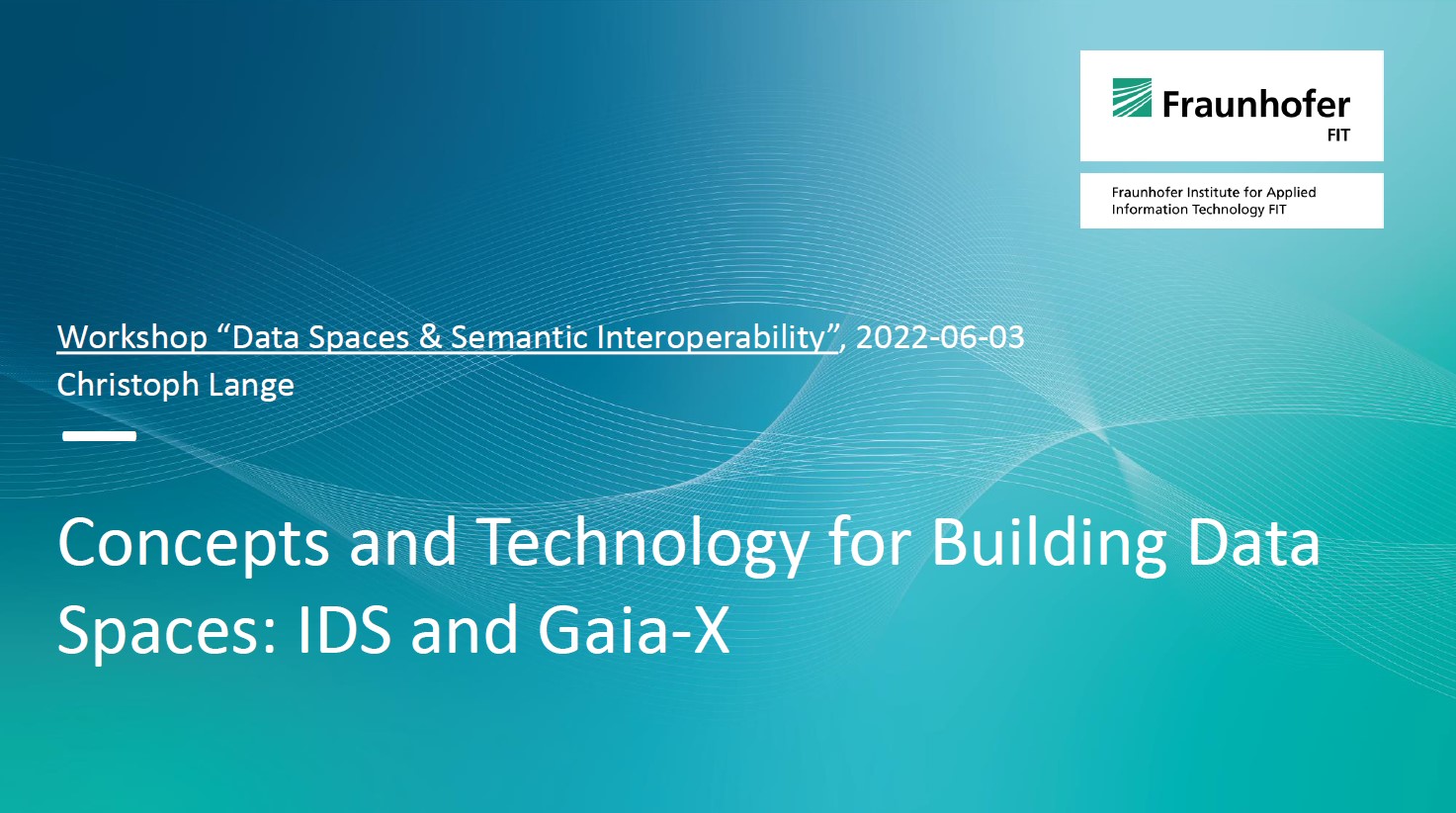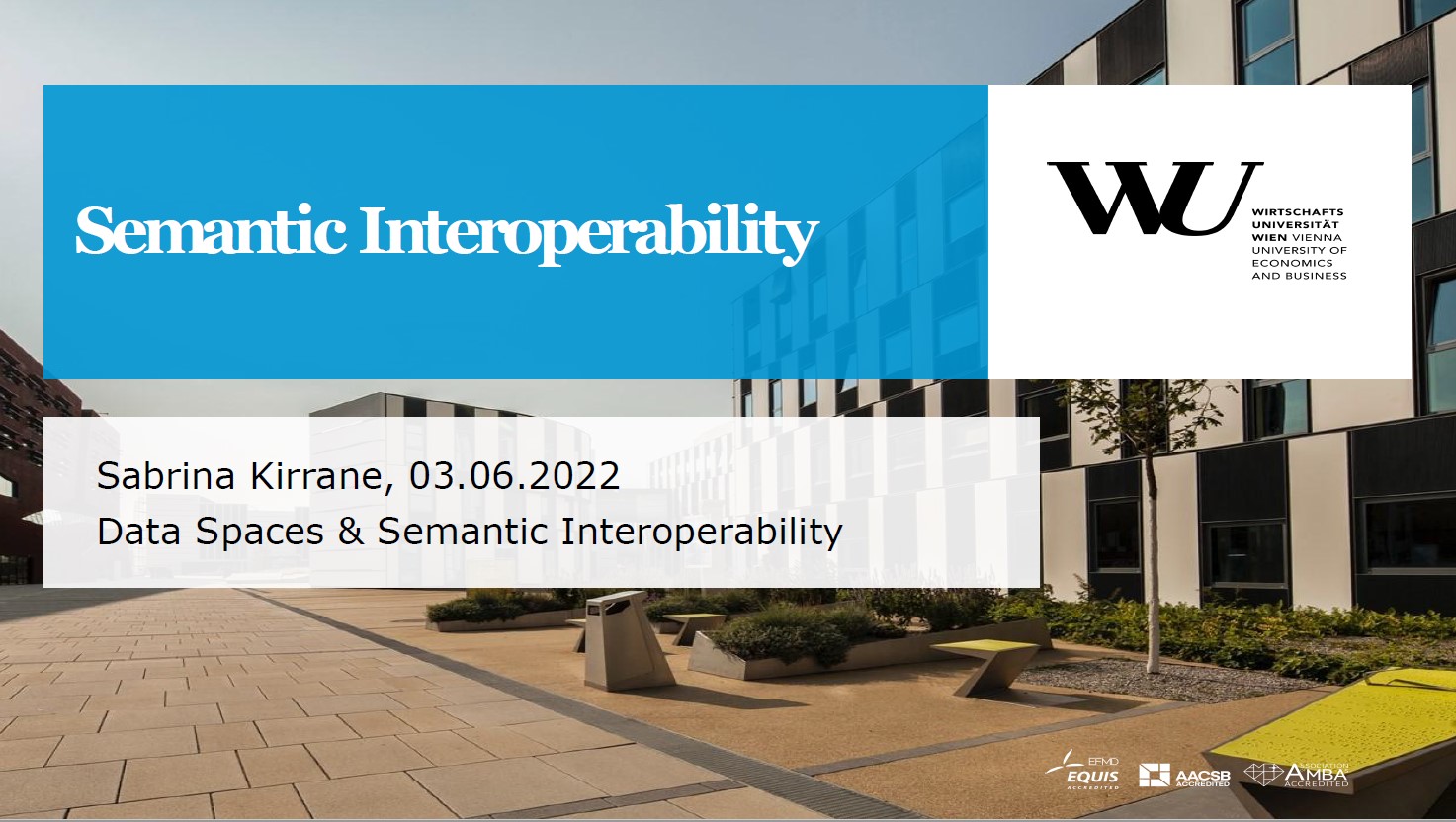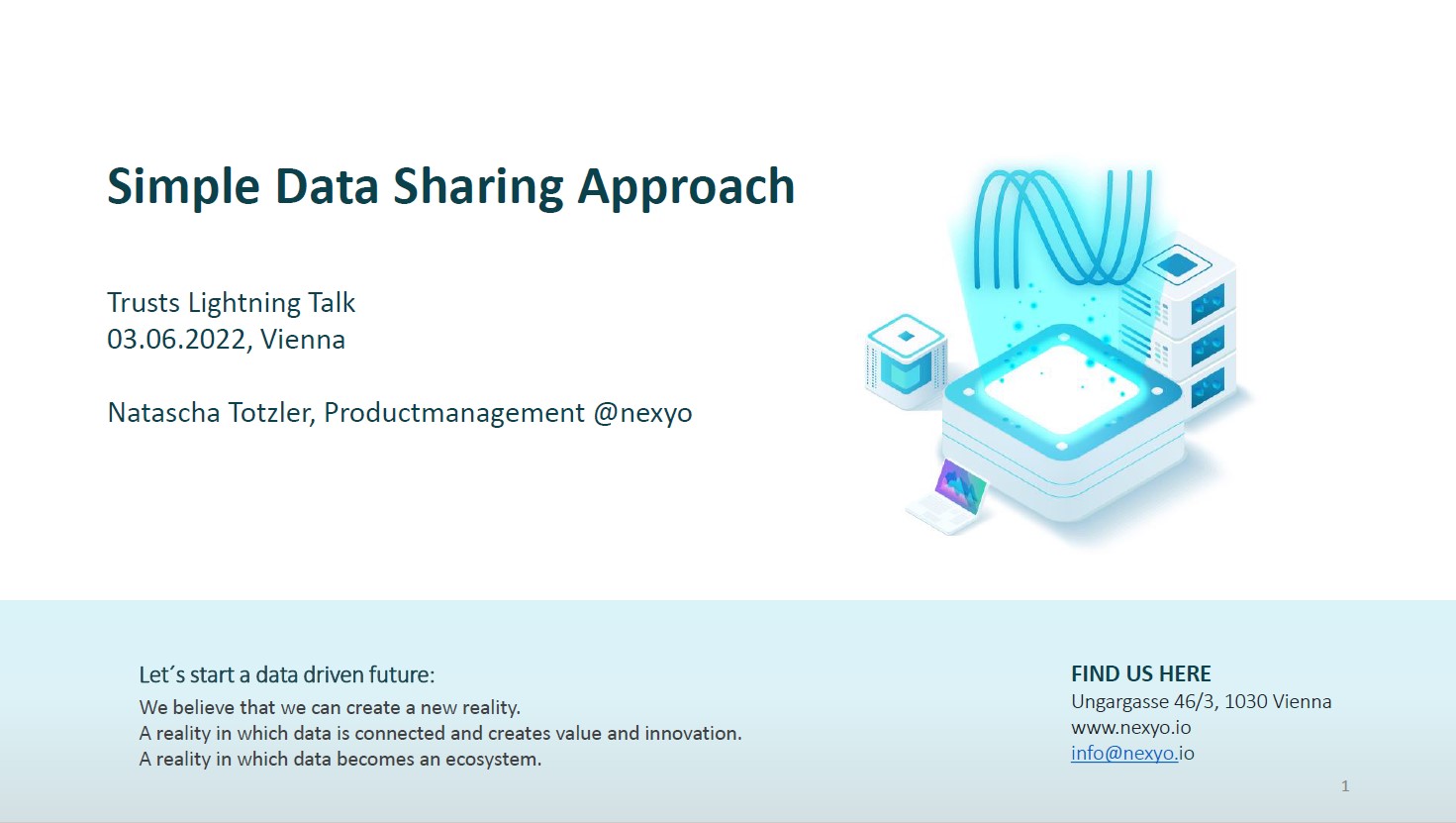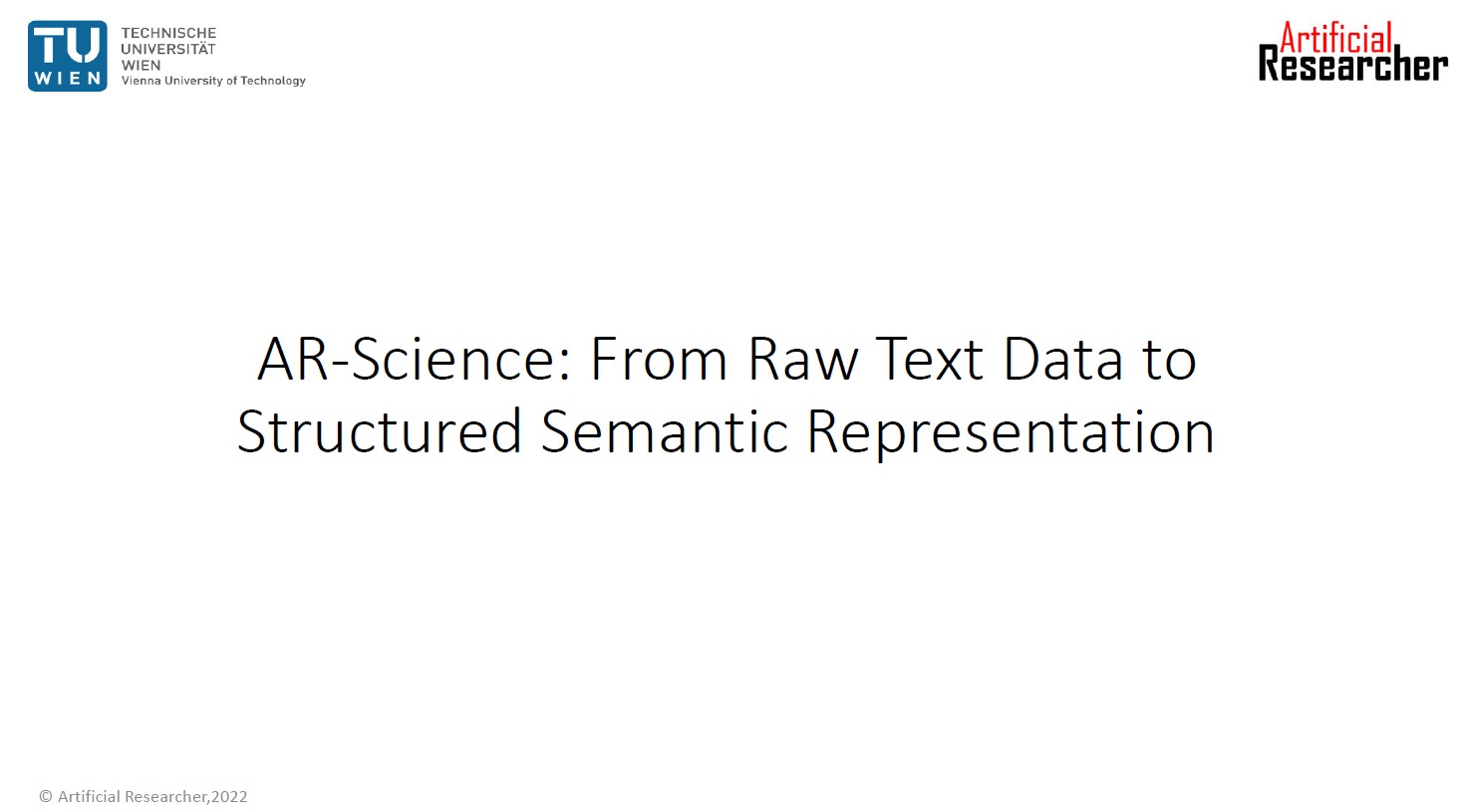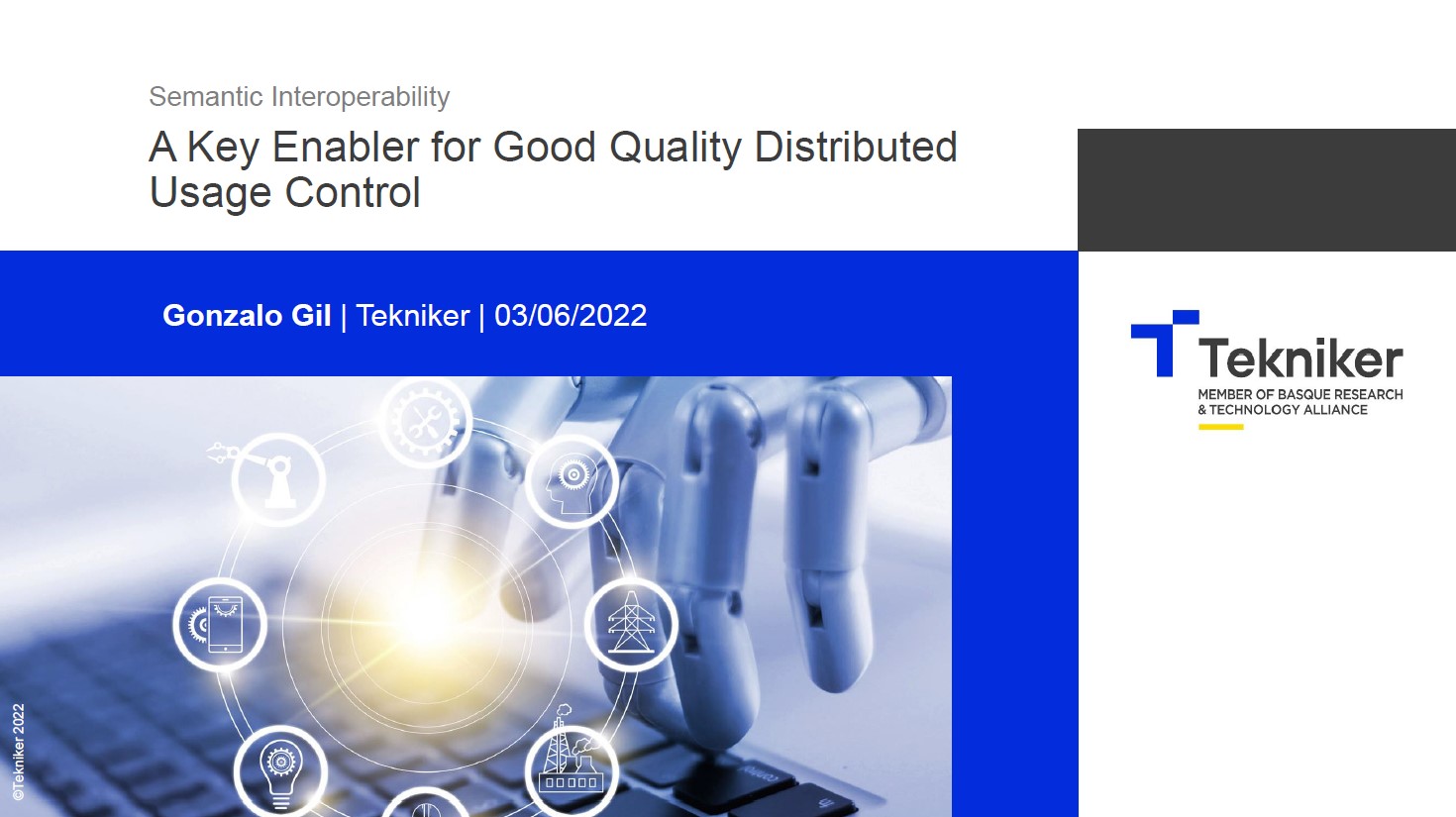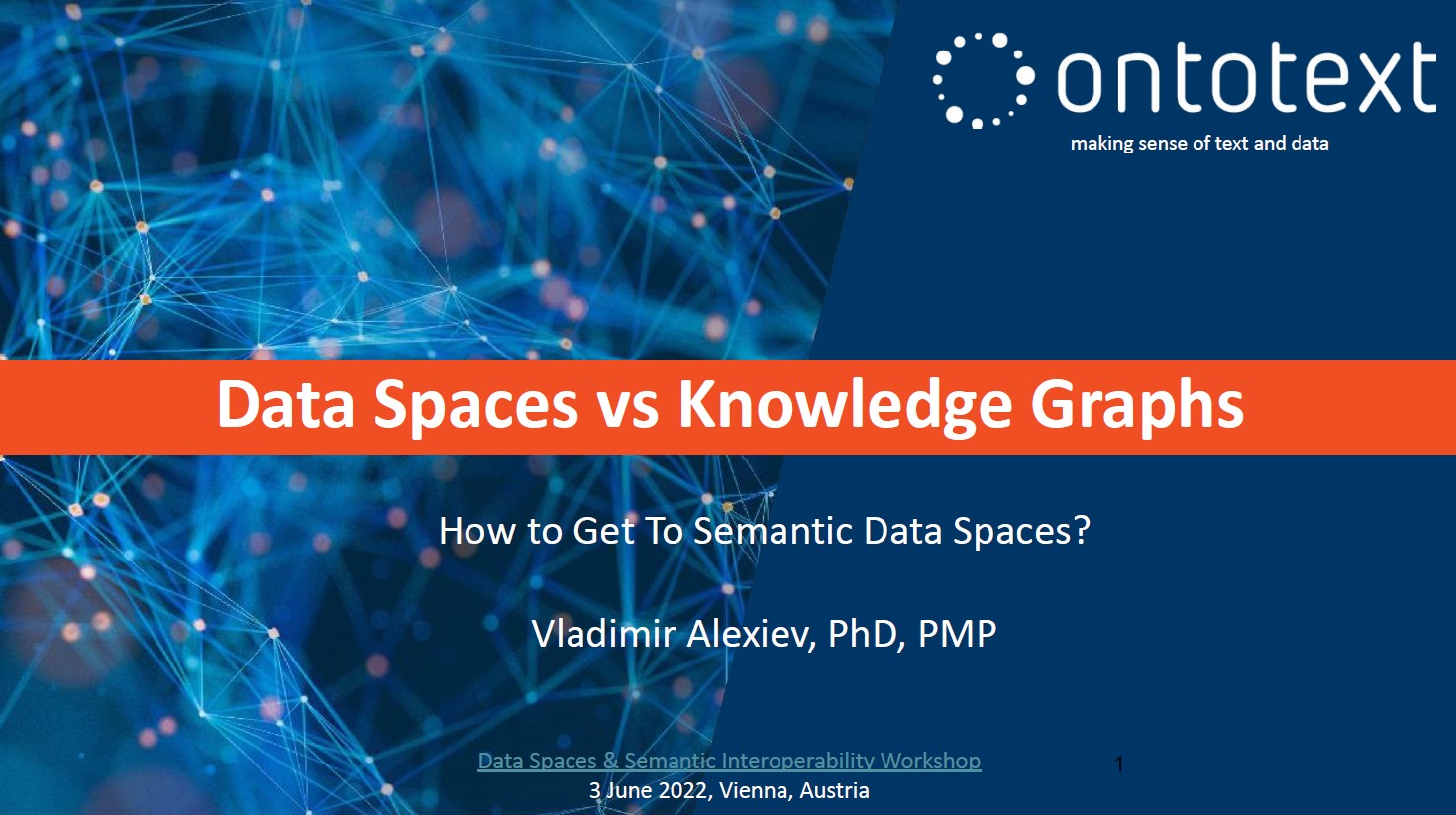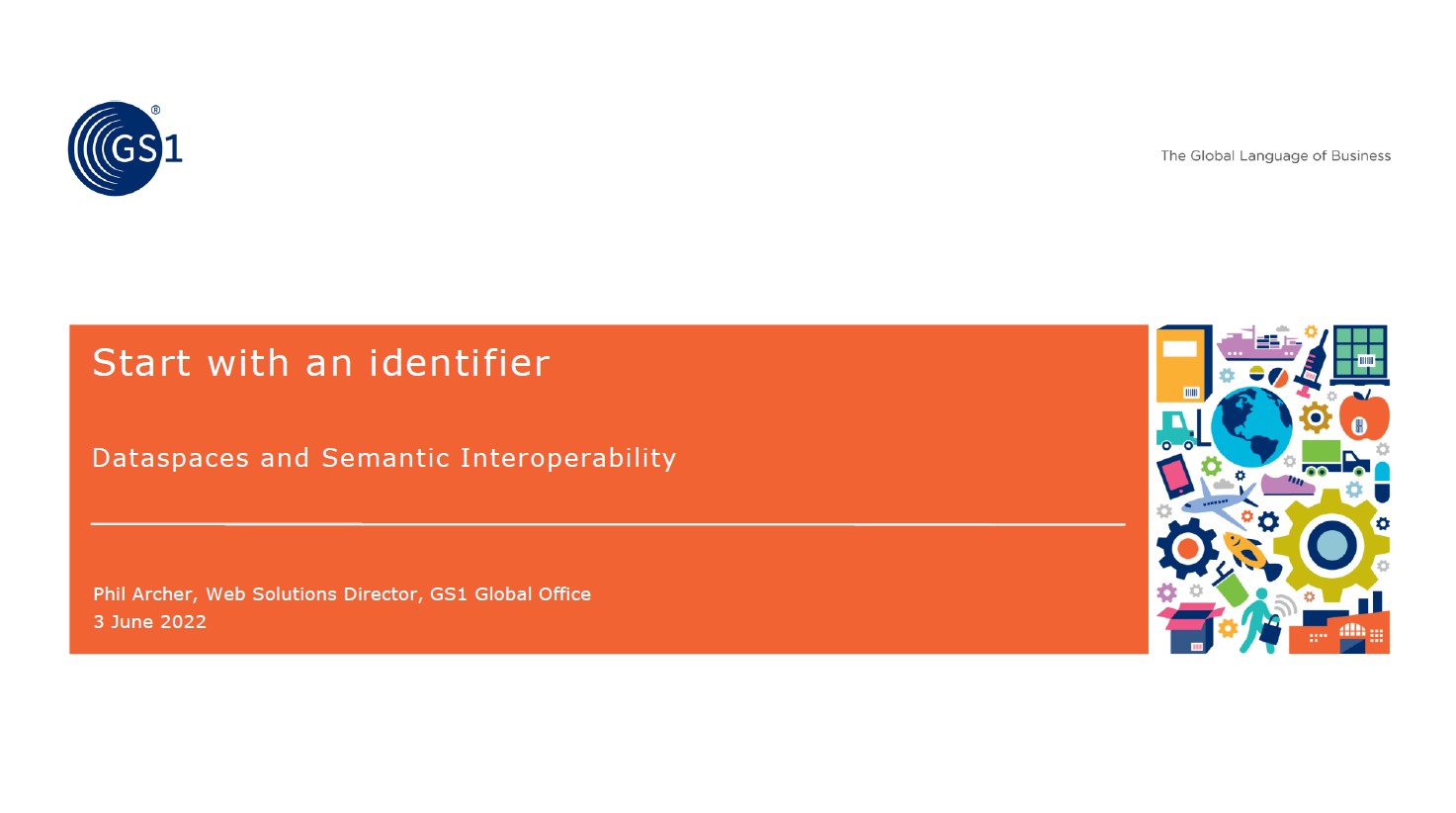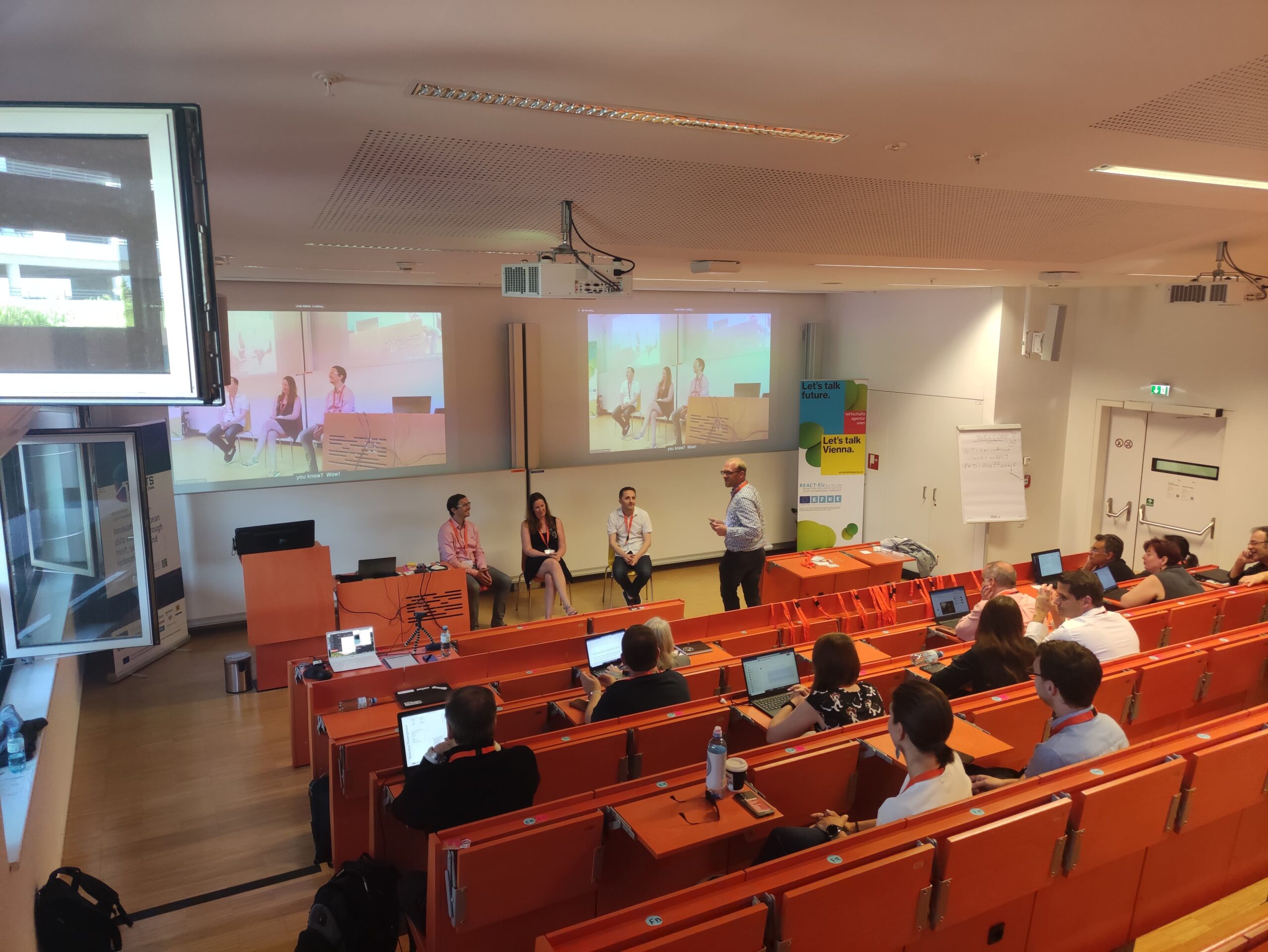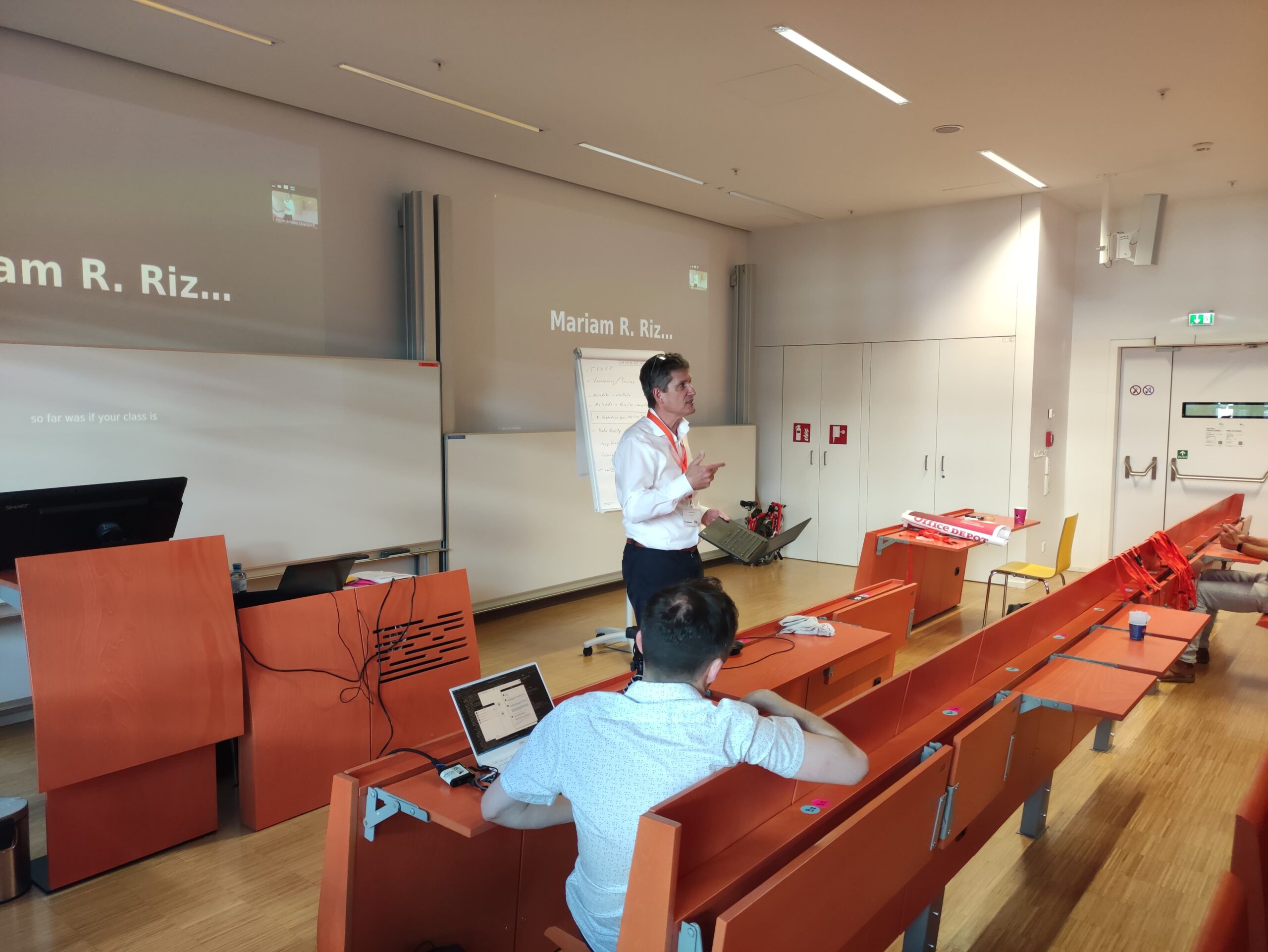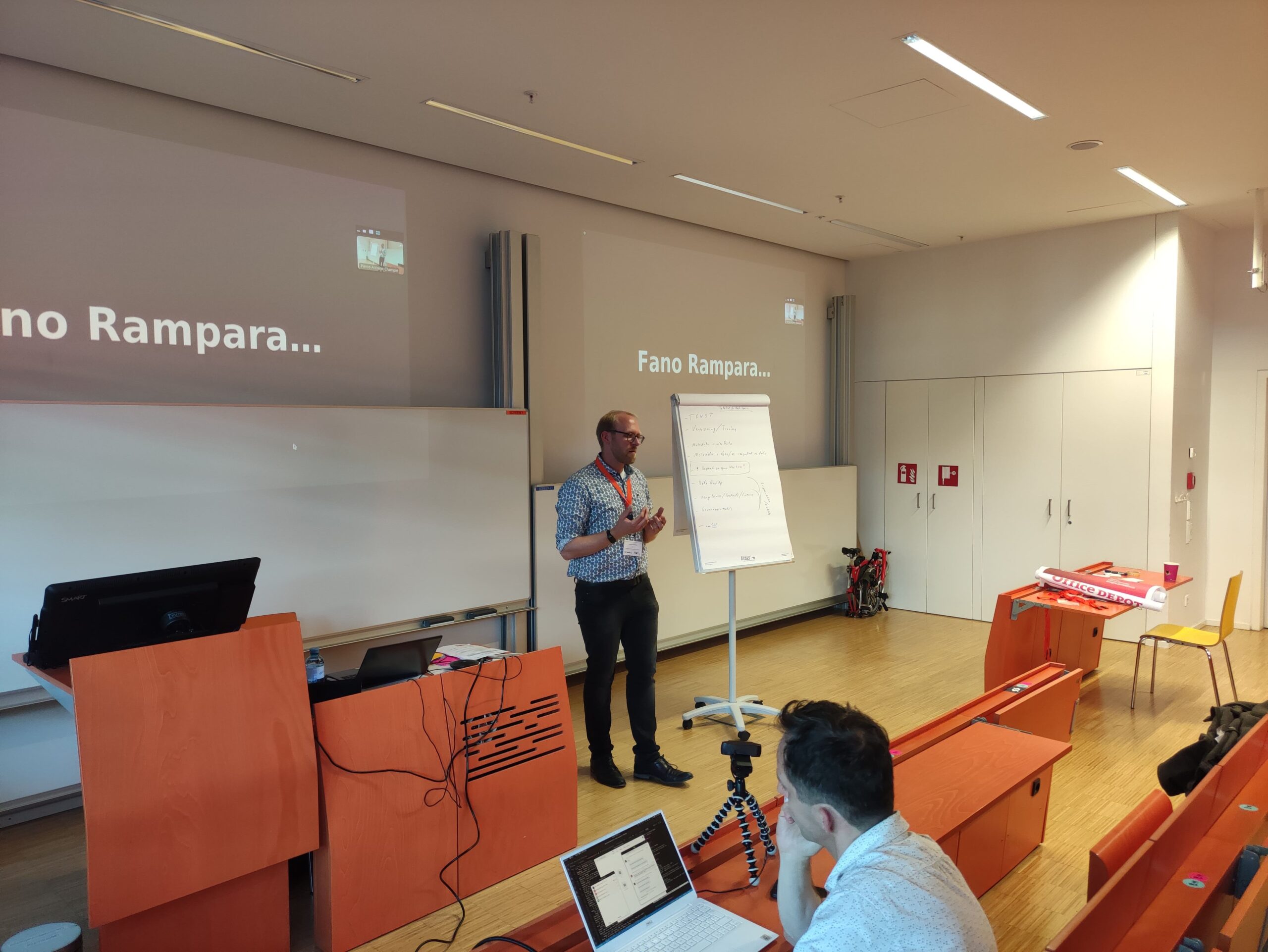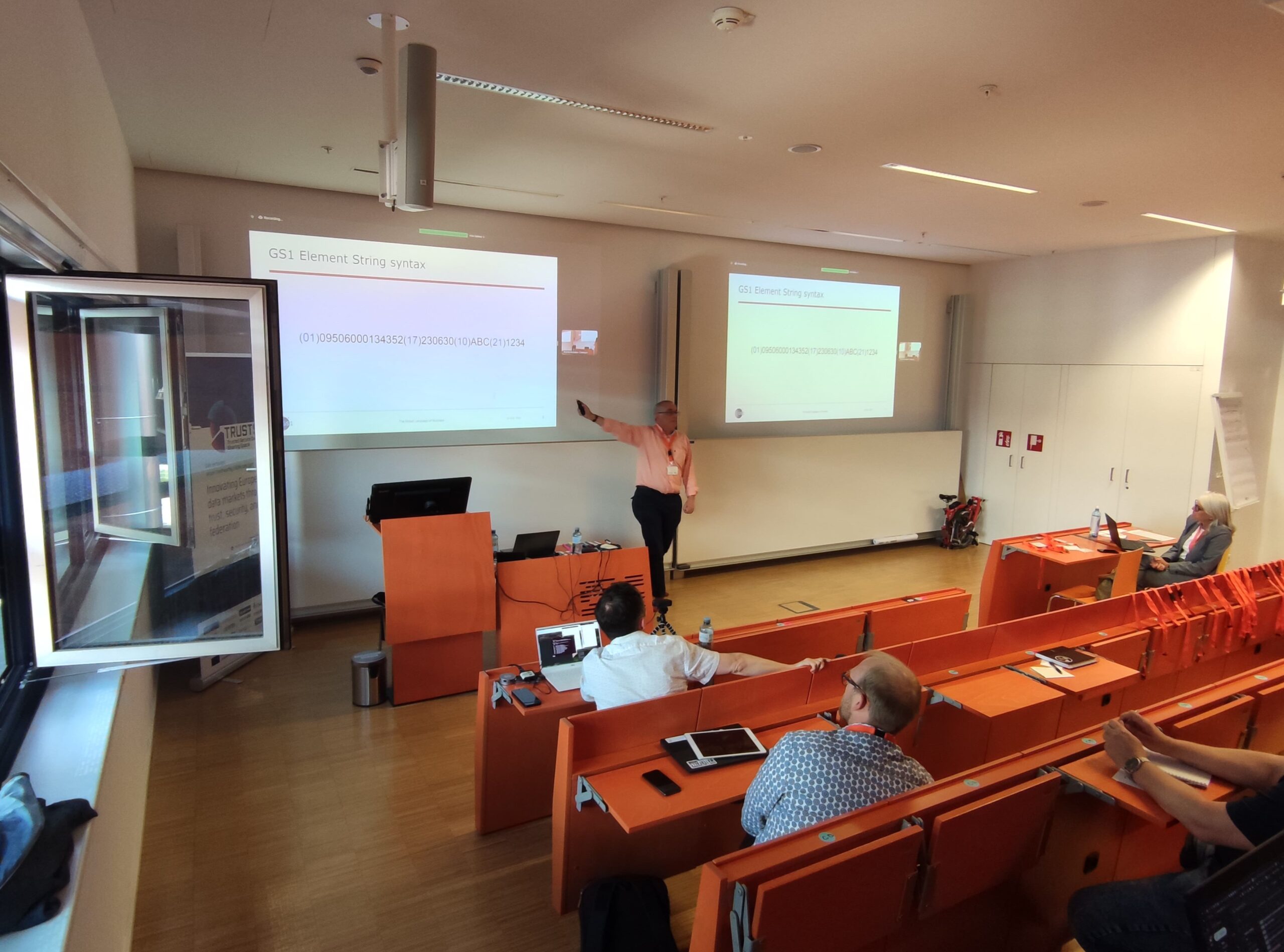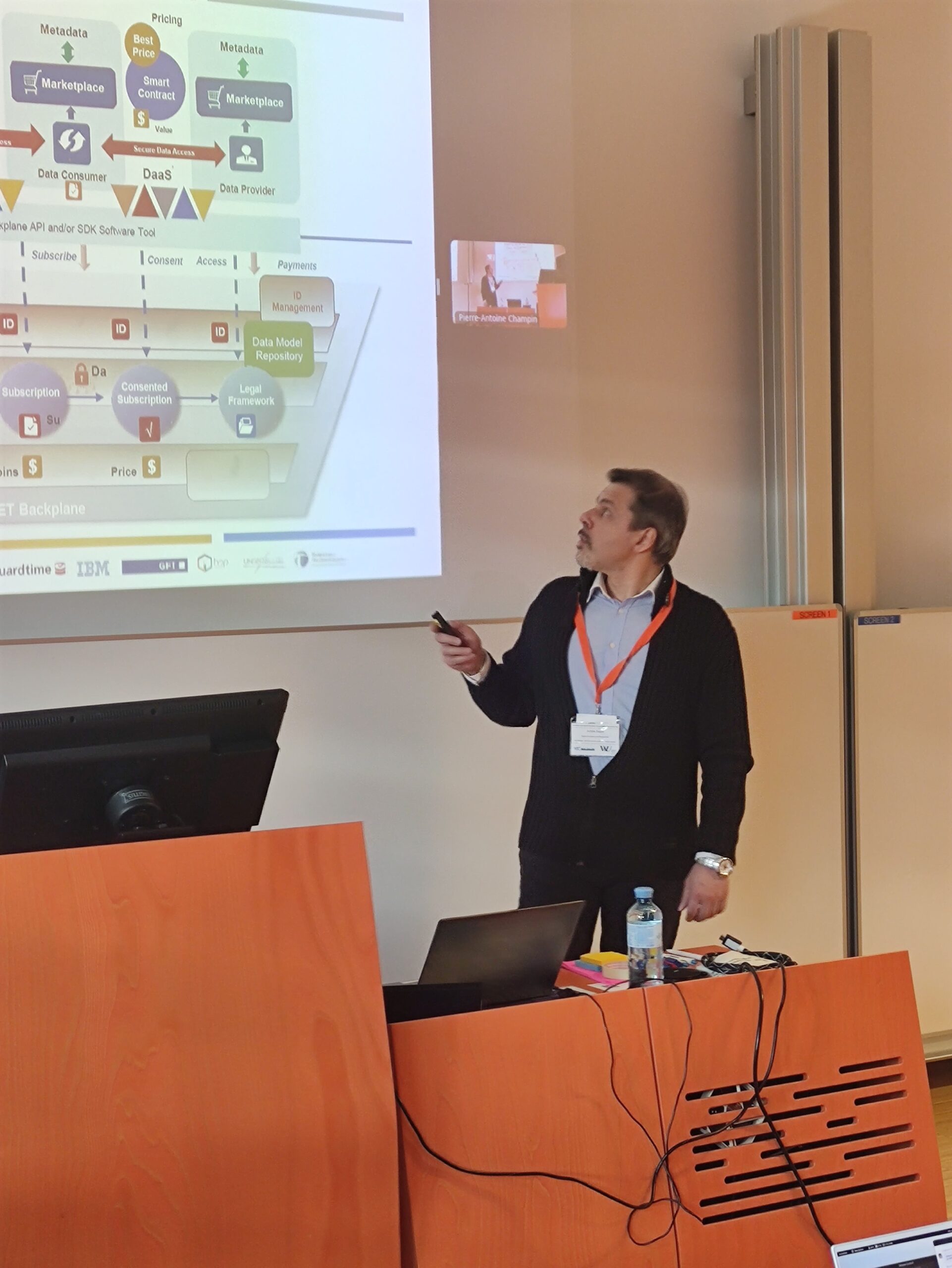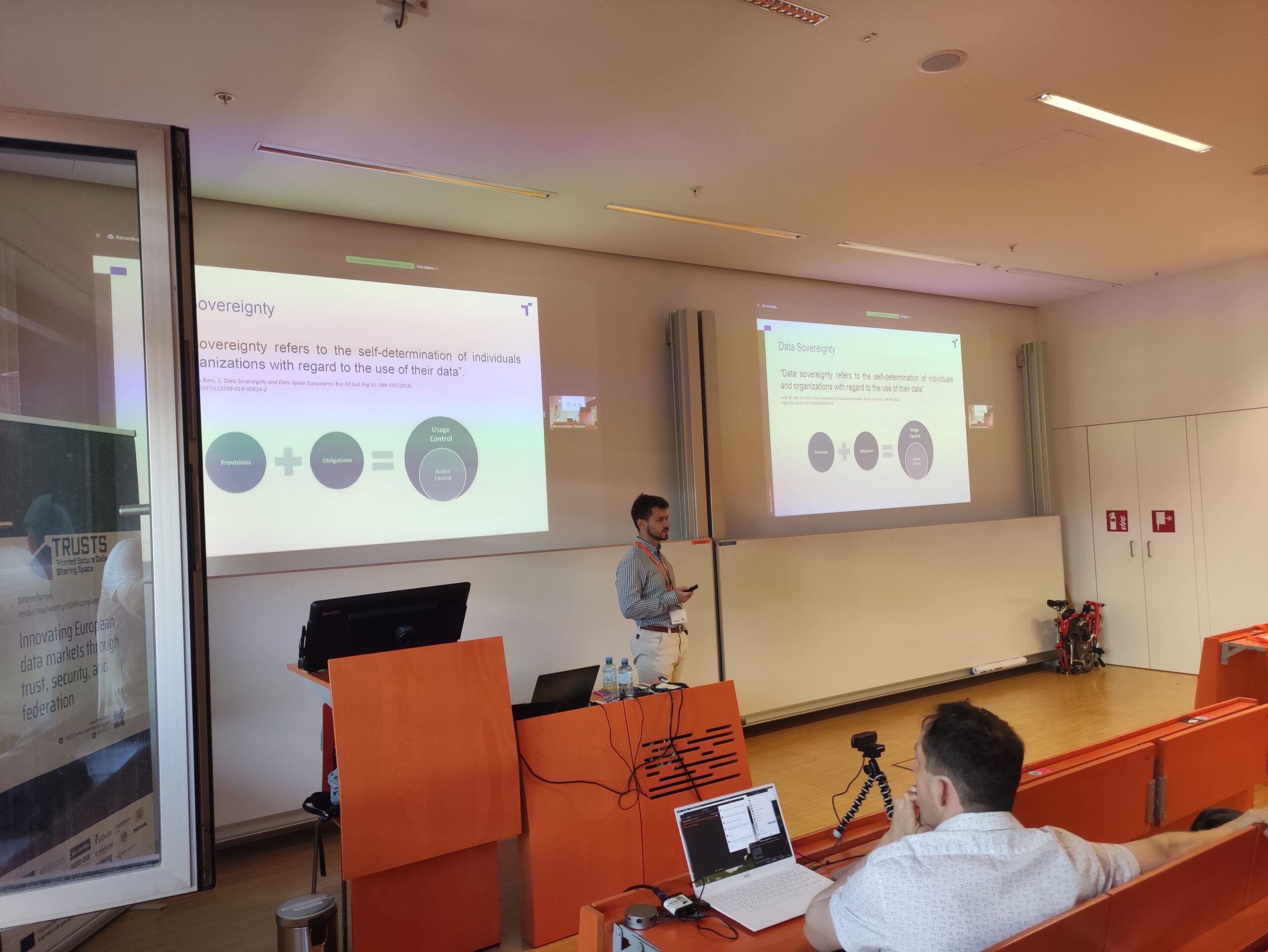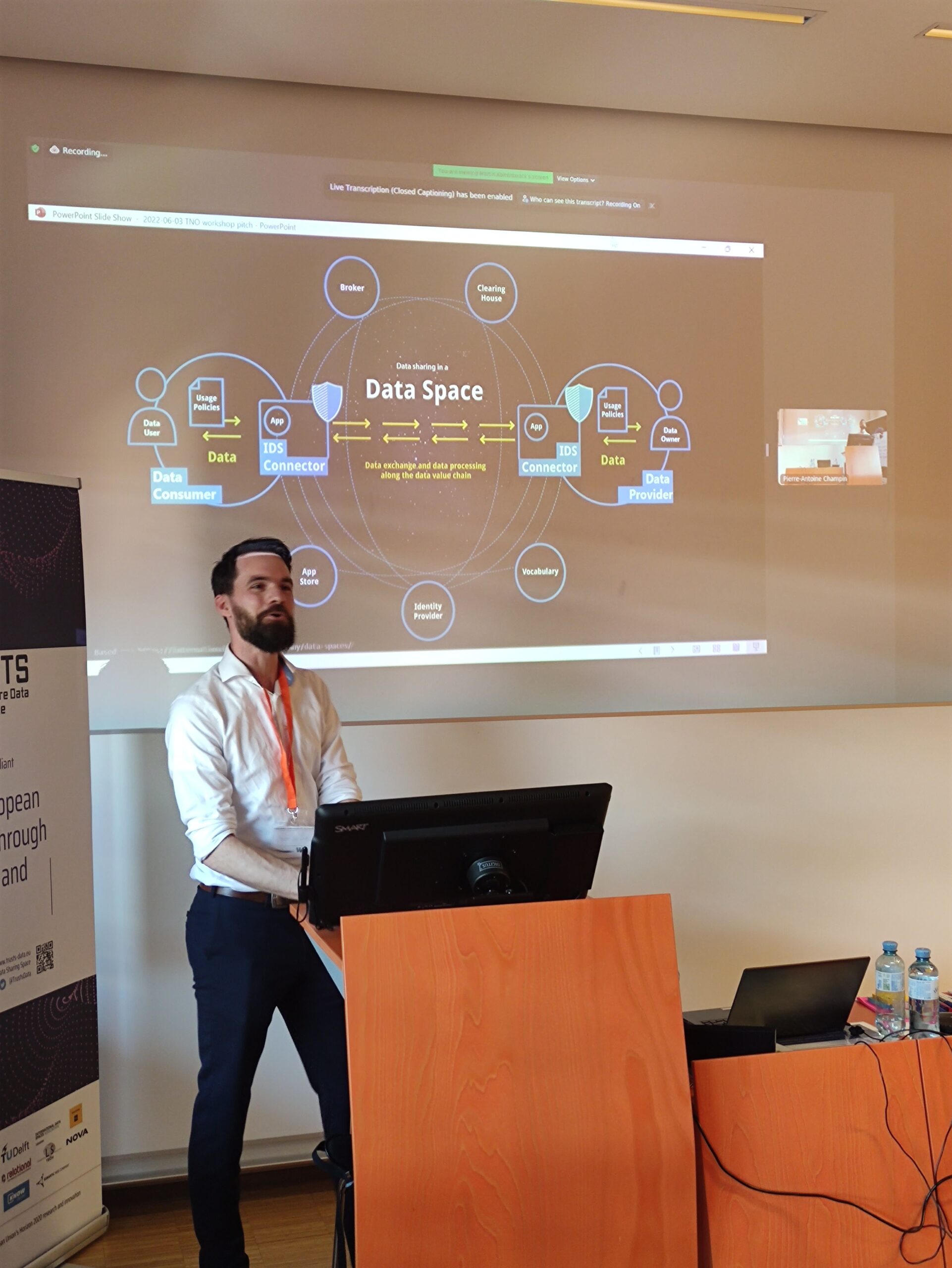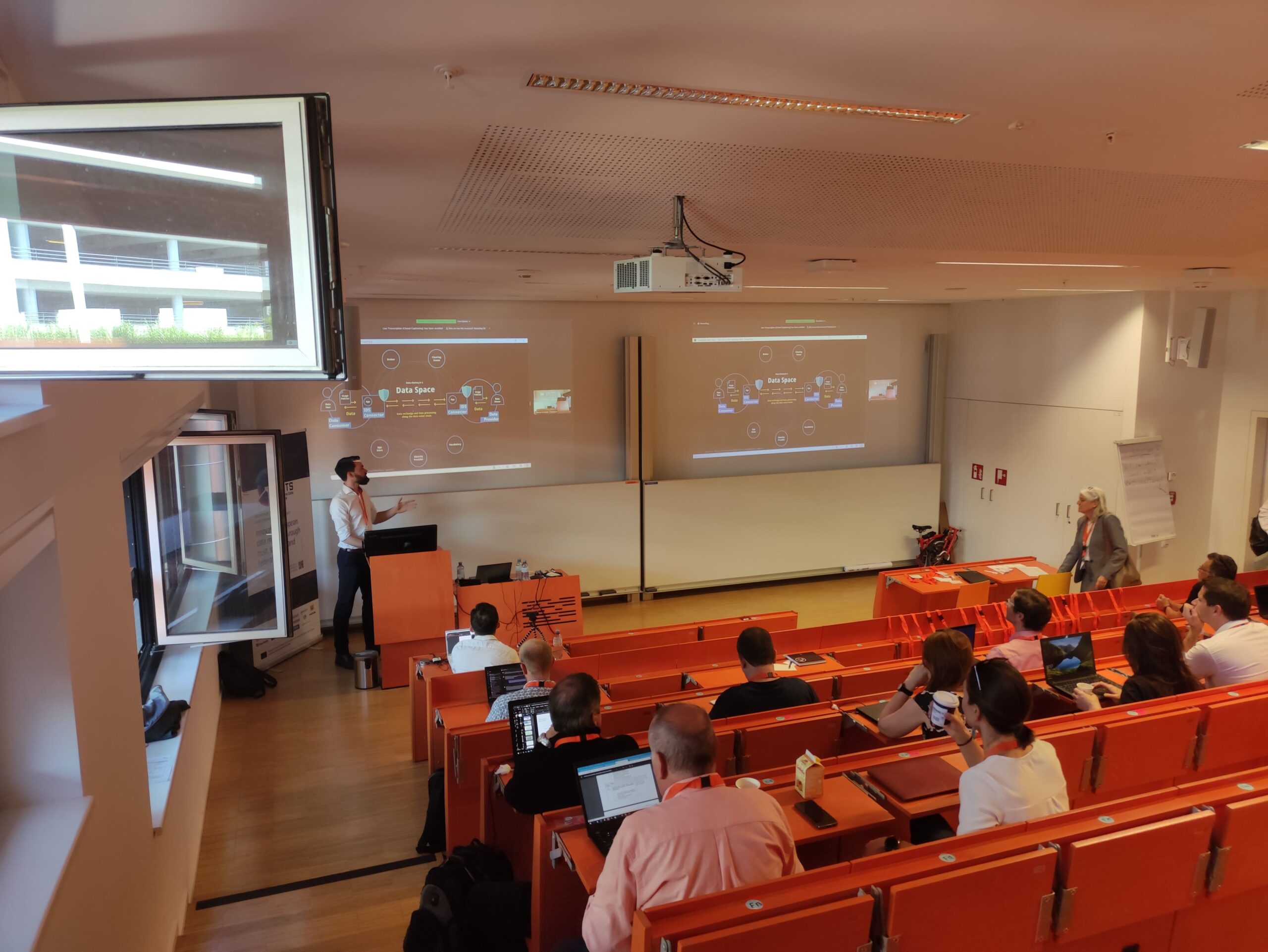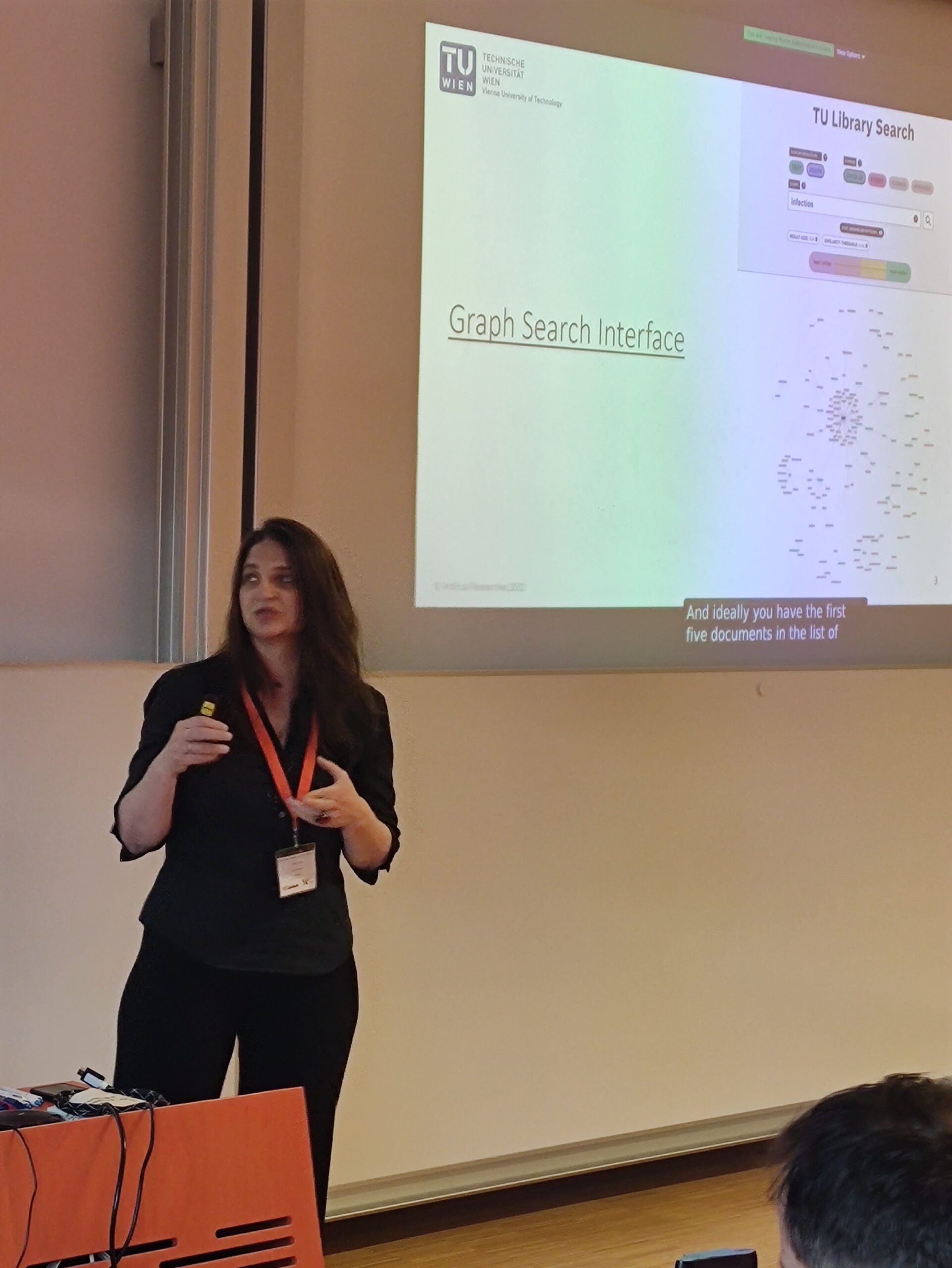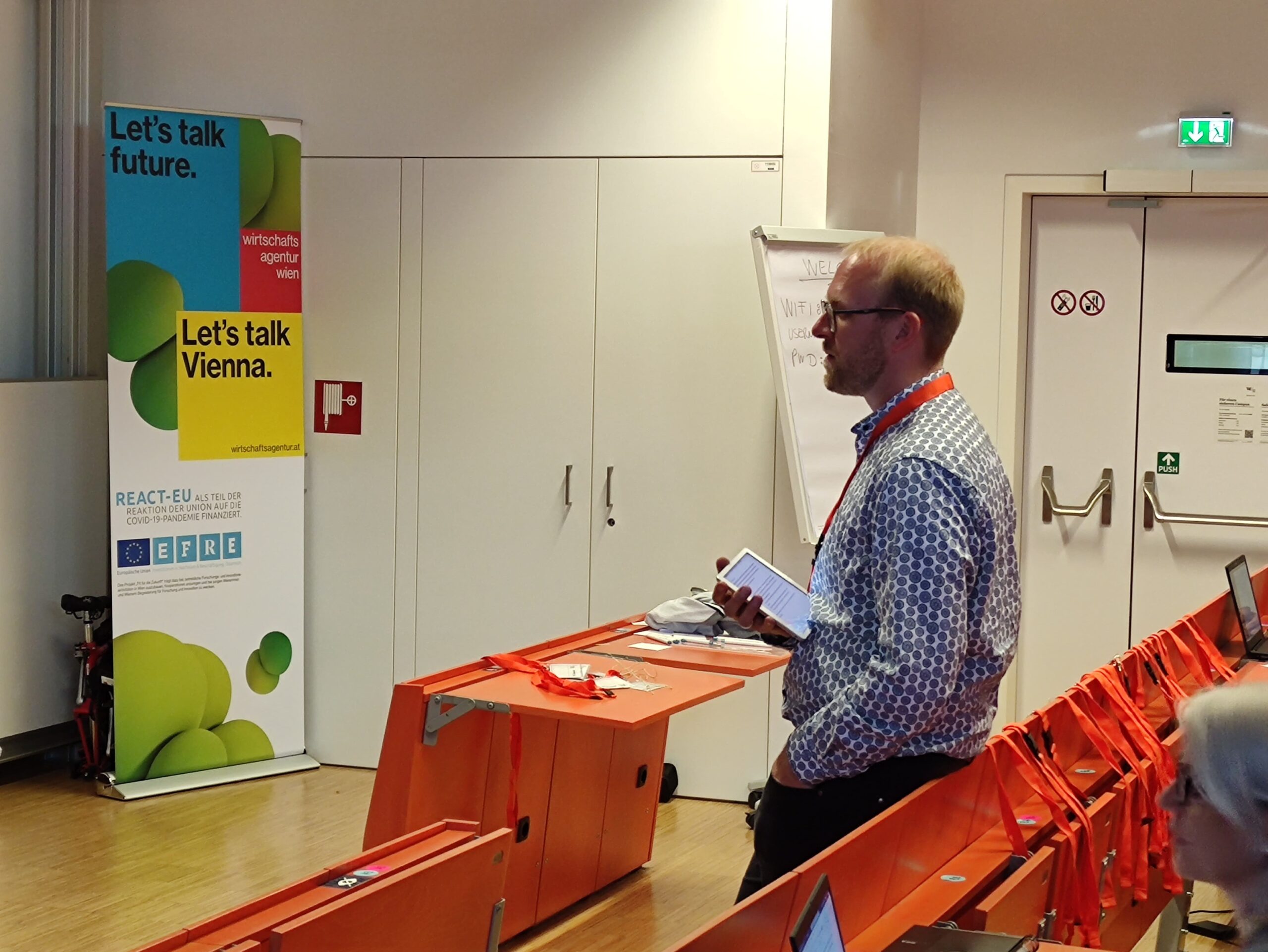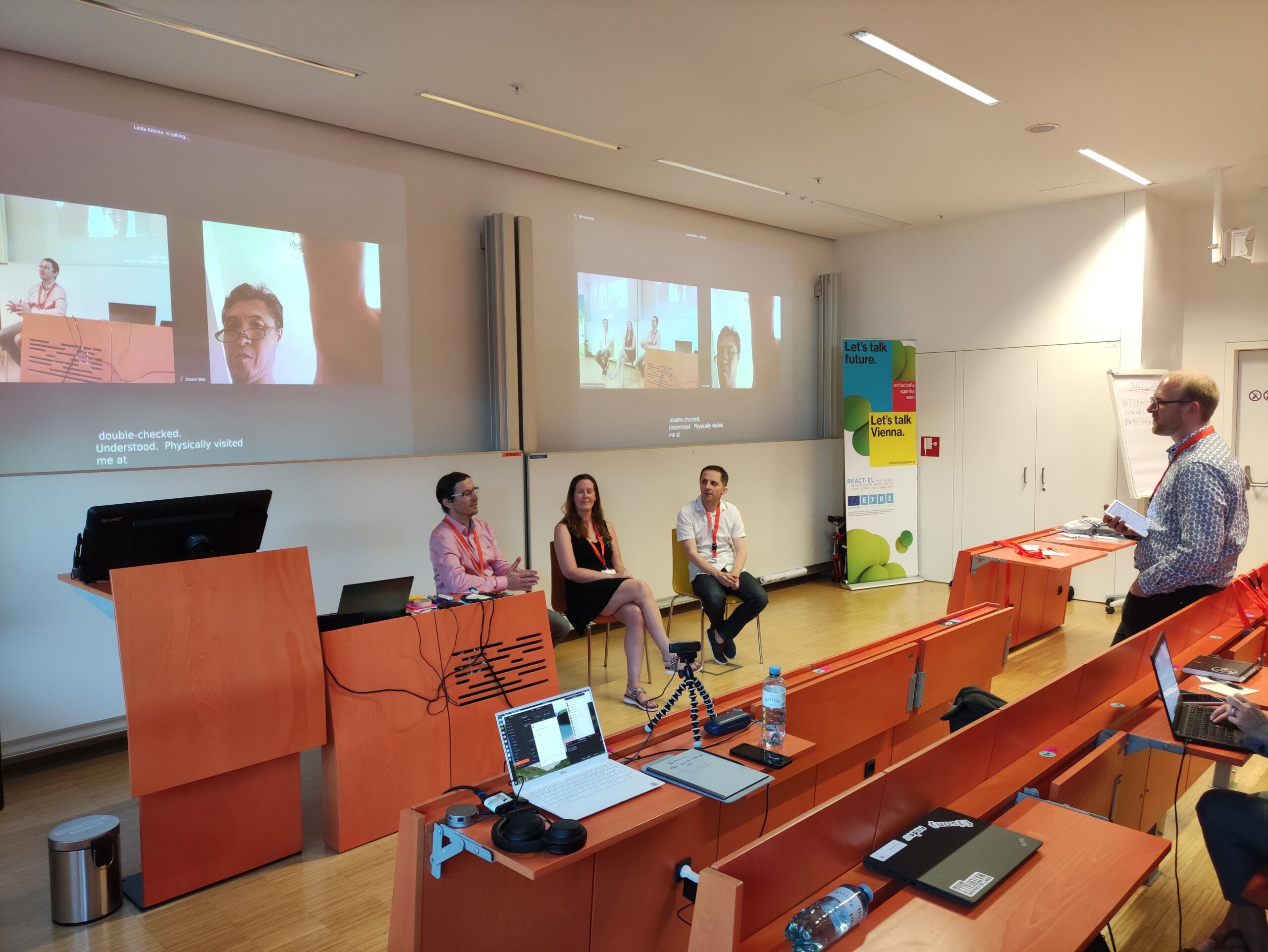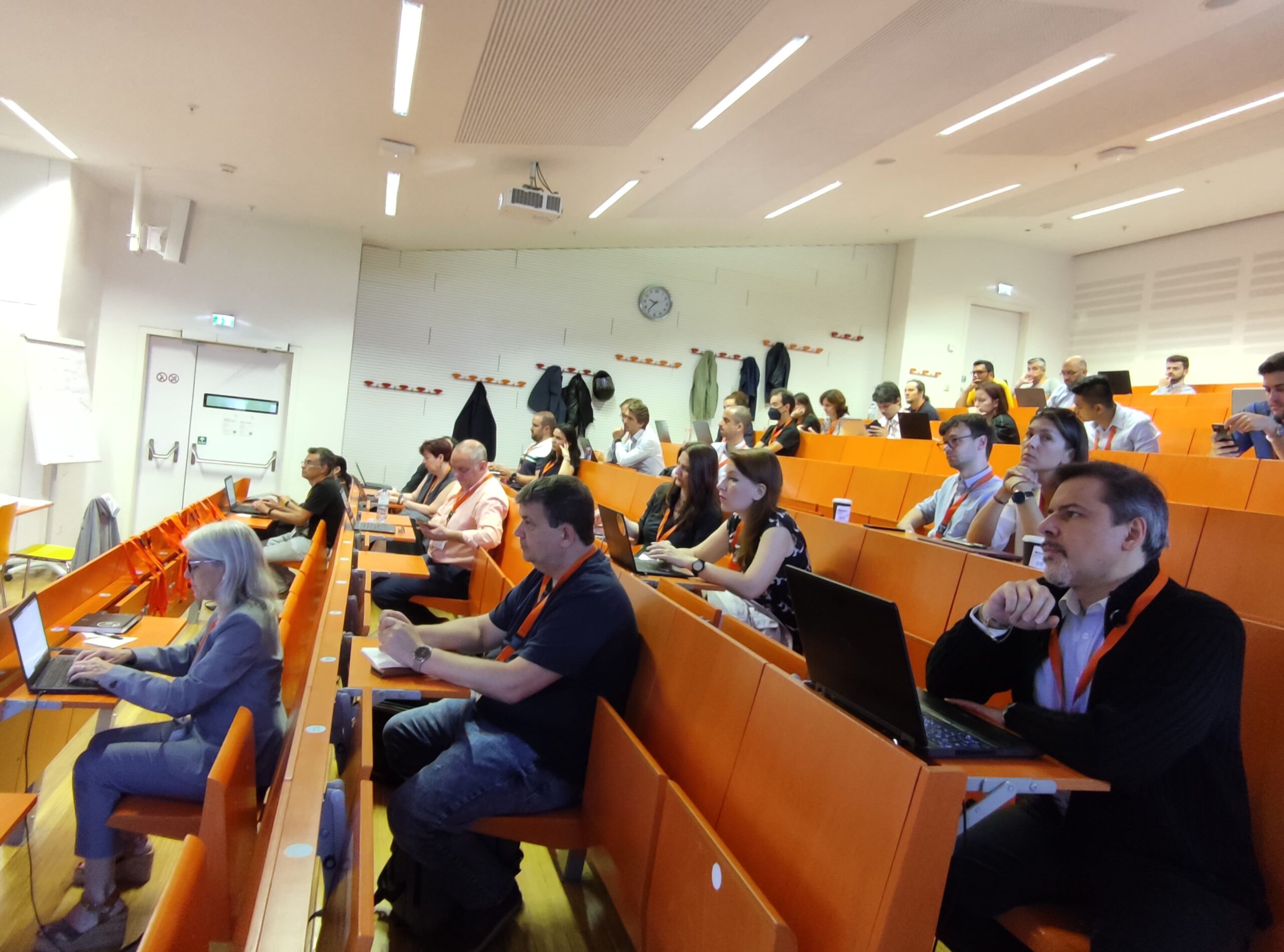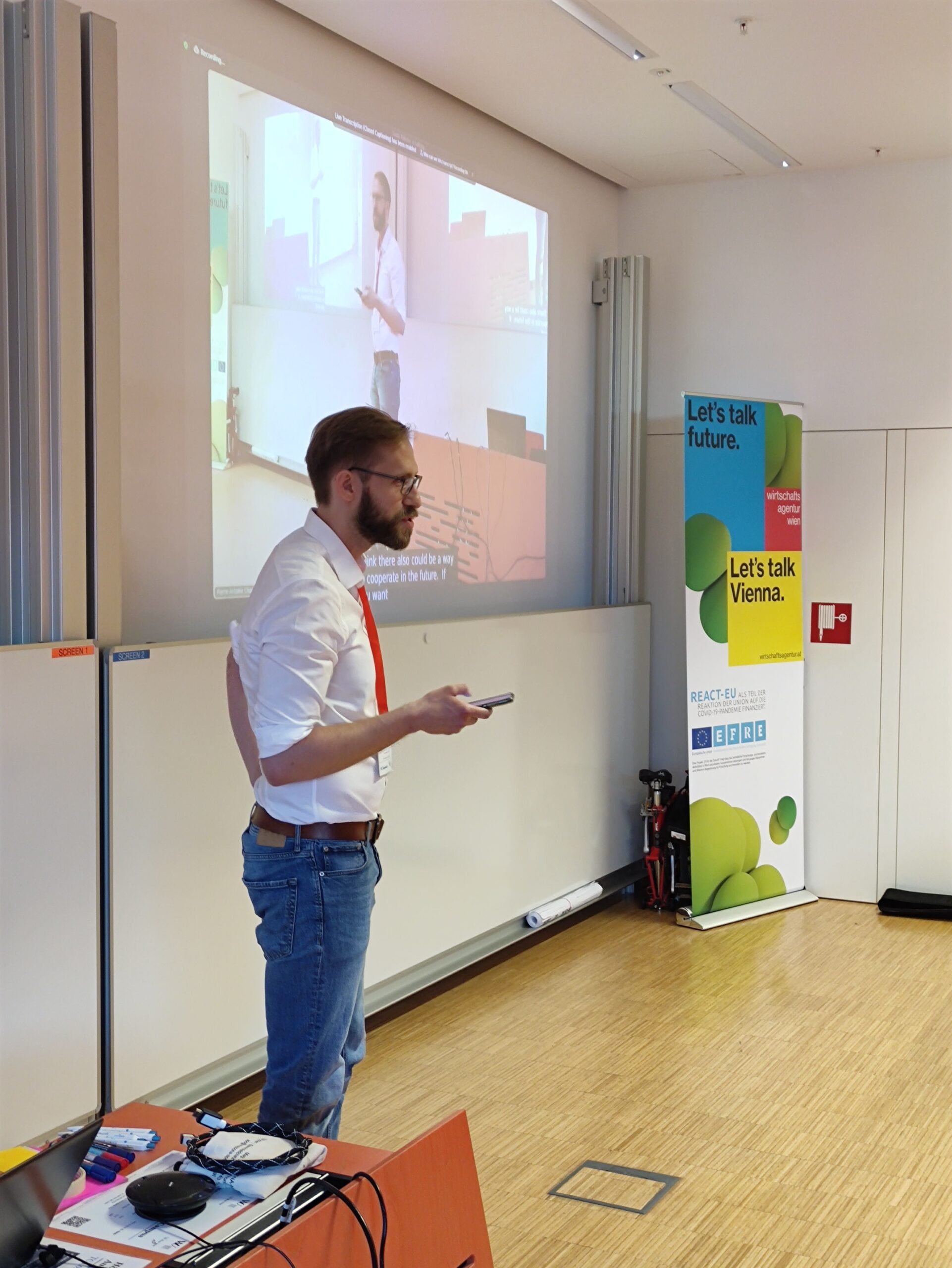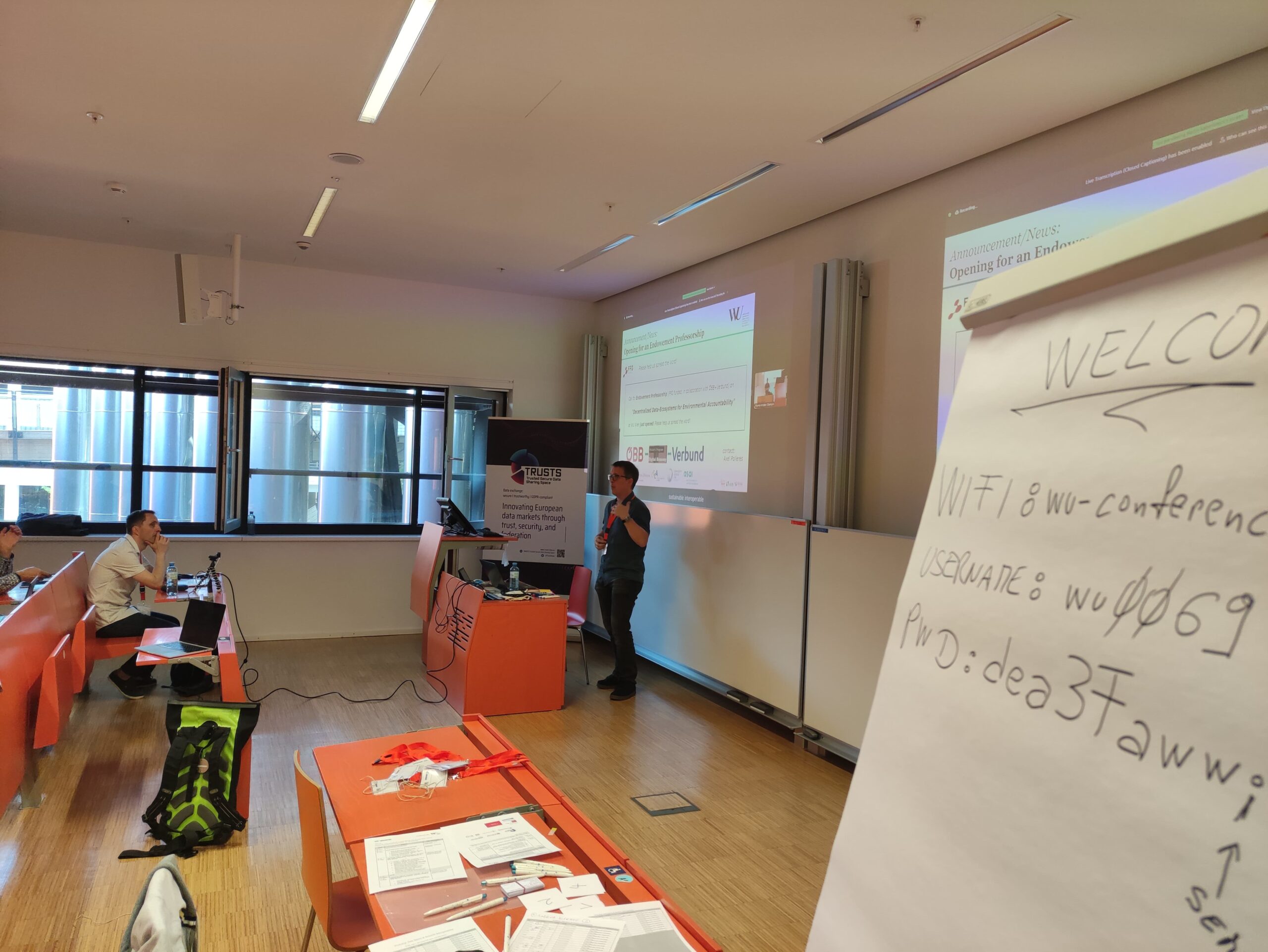Identifying and Specifying Gaps regarding Interoperability in Data Spaces
On Friday 3rd of June 2022 around 45 experts in the field of data spaces, data markets and (semantic) interoperability met at Vienna University of Economics to discuss the topic of (semantic) interoperability in data spaces. The day started by a welcome by the workshop hosted by Axel Polleres, Professor at the University of Economics Vienna followed by a welcome and short information about the City of Vienna by Georg Sedlbauer (Vienna Business Agency).
After a short intro of the agenda the PC chair of the workshop Sebastian Steinbuss (CTO of International Data Space Association) moderated a panel with: Sabrina Kirrane (University of Economics Vienna), Pierre-Antoine Champin (W3C), and Christoph Lange-Bever (Fraunhofer Germany) about interoperability and related standardisation efforts and the topic of data usage control.
This introduction into the events topic was followed by 10 lightning talks – for details of speakers and topics see the workshop agenda – that were selected by the workshops’ Programme Committee from the submitted position papers.
After the lunch break the interactive part of the event started with 4 moderated break-out sessions discussing the following topics:
- The Data Spaces approach: metadata or data (interoperability)
- (Data) Usage Control in Data Spaces
- Language and vocabularies to support Interoperability in Data Spaces
- Connecting the digital and physical world via Data Spaces
The outcomes and results of these break-outs were presented and discussed in the plenary with all participants – the main objective of this activity was to identify and specify existing gaps regarding (semantic) interoperability in data spaces – with the following 5 major results of identified gaps:
- Interoperability is seen often on metadata level ONLY (what about the data?)
- No industry specific controlled vocabularies & Knowledge Graphs are in place
- If such resources are available these resources not available in other languages than English
- Insufficient data usage control mechanisms (right-, value-, purpose modeling)
- Connection of the physical and digital world still missing
The workshop has been closed by a summary and closing by Sebastian Steinbuss and a social networking event at the Vienna Prater, where the workshop topics as well as others were discussed in more details, new project ideas have been specified, and co-operations were started!
The workshop Interoperability in Data Spaces was great success and organisers and participants agreed to meet for a follow-up event either at SEMANTiCS2022 in Vienna in September or at the IDSA Summit 2022 planned for late 2022 in Germany…
Thereby stay tuned for more news about Interoperability in Data Spaces!
Opening & Introduction
Lightning Talks – Presentations
Position Papers
The “AluTrace” Use Case: Harnessing Lightweight Design Potentials via the Materials Data Space®
Semantic approaches for facilitating interoperability between data driven sources – A case study
Semantic Interoperability, a Key Enabler for Good Quality Usage Control
The Vocabulary Hub to configure data space connectors
Data search and discovery in language data spaces: challenges and solutions
Data sharing in smashHit: Making consent and contracts interpretable with knowledge graphs
Data Spaces vs Knowledge Graphs
Do Track – A Do Not Track Use Case
Recordings of the workshop on Interoperability in Data Spaces
